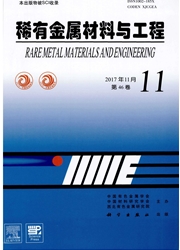

 中文摘要:
中文摘要:
石油石化行业中管道的服役工况十分恶劣,很多管道未达其设计寿命而失效报废,造成极大浪费,因此采用表面工程技术对其进行防护和修复具有十分重要的经济价值。主要阐述了热喷涂、自蔓延高温合成和表面镀层等三种表面工程技术对管道内外表面的强化机理,并对它们的实际应用进行了具体介绍。热喷涂技术主要介绍了电弧喷涂、火焰喷涂和等离子喷涂三种热喷涂技术,并分别从它们的工艺原理、适用材料体系、制备涂层性能(结合强度、孔隙率等)以及经济性等方面进行了对比介绍。高温自蔓延合成技术主要从材料和工艺两方面进行了剖析,并对其所制备陶瓷内衬管的连接方法进行了具体介绍。镀层技术主要对钨合金电镀和Ni-P化学镀两种镀层技术的优缺点和适用范围进行了对比介绍。最后针对表面工程技术的特点,对其在石油石化行业的前景进行了分析与展望。
 英文摘要:
英文摘要:
The severe service conditions of pipelines in petroleum and petrochemical industry often led to advance scrapping before the maturity of design service and thus caused horrible waste. Therefore, surface engineering technologies played an important role of bringing economic value in pipeline protection and repair. Strengthening mechanisms of thermal spraying, self propagation high-temperature synthesis (SHS) and surface plating on pipeline interior and exterior surfaces were mainly expounded, and their concrete applications were described. For thermal spraying technologies, arc spraying, flame spraying and plasma spraying were mainly introduced and compared regarding their technical principles, applicable material systems, pre- pared coating properties (bonding strength, porosity, etc.) and economy. SHS was mainly clarified from two aspects of material and process. In addition, the connection methods of ceramic-lined pipes were illustrated. For plating technologies, advantages and disadvantages as well as scopes of application of tungsten alloy eleetroplating and Ni-P chemical plating were introduced in comparison. Finally, the prospect of surface engineering technologies in petroleum and petrochemical industry were analyzed and expected based on their characteristics.
 同期刊论文项目
同期刊论文项目
 同项目期刊论文
同项目期刊论文
 期刊信息
期刊信息
